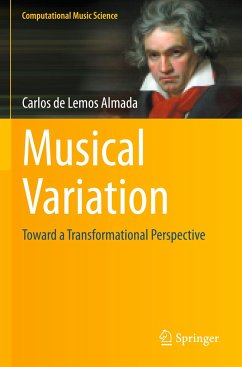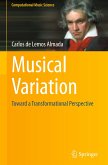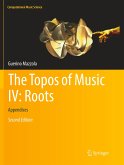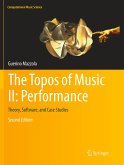This book offers an in-depth analysis of musical variation through a systematic approach, heavily influenced by the principles of Grundgestalt and developed variations, both created by the Austrian composer Arnold Schoenberg (1874-1951). The author introduces a new transformational-derivative model and the theory that supports it, specifically crafted for the examination of tonal music.
The idea for this book emerged during a sabbatical at Columbia University, while the content is the product of extensive research conducted at the Federal University of Rio de Janeiro, resulting in the development of the Model of Derivative Analysis. This model places emphasis on the connections between musical entities rather than viewing them as separate entities. As a case study, the Intermezzo in A Major Op.118/2 by Brahms is selected for analysis.
The author's goal is to provide a formal and structured approach while maintaining the text's readability and appeal for bothmusicians and mathematicians in the field of music theory. The book concludes with the author's recommendations for further research.
The idea for this book emerged during a sabbatical at Columbia University, while the content is the product of extensive research conducted at the Federal University of Rio de Janeiro, resulting in the development of the Model of Derivative Analysis. This model places emphasis on the connections between musical entities rather than viewing them as separate entities. As a case study, the Intermezzo in A Major Op.118/2 by Brahms is selected for analysis.
The author's goal is to provide a formal and structured approach while maintaining the text's readability and appeal for bothmusicians and mathematicians in the field of music theory. The book concludes with the author's recommendations for further research.








